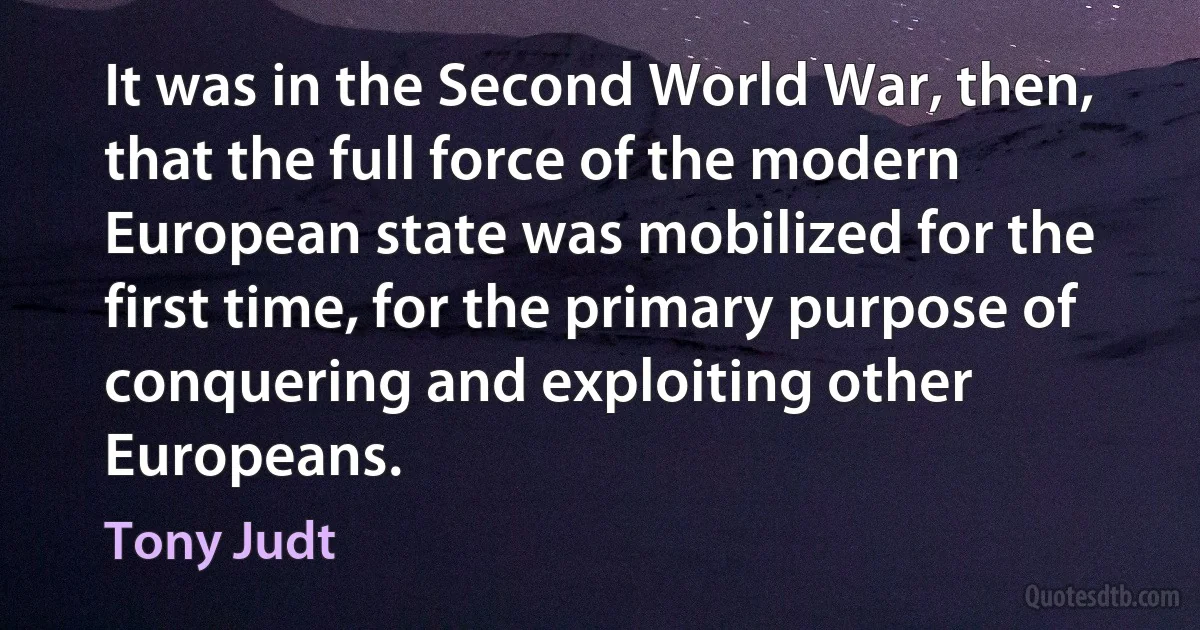State Quotes - page 100
In relativity, movement is continuous, causally determinate and well defined, while in quantum mechanics it is discontinuous, not causally determinate and not well defined. Each theory is committed to its own notions of essentially static and fragmentary modes of existence (relativity to that of separate events, connectable by signals, and quantum mechanics to a well-defined quantum state). One thus sees that a new kind of theory is needed which drops these basic commitments and at most recovers some essential features of the older theories as abstract forms derived from a deeper reality in which what prevails in unbroken wholeness.

David Bohm
It is admitted that the power of taxing the people and their property is essential to the very existence of Government, and may be legitimately exercised on the objects to which it is applicable, to the utmost extent to which the Government may choose to carry it. The only security against the abuse of this power is found in the structure of the Government itself. In imposing a tax, the legislature acts upon its constituents. This is, in general, a sufficient security against erroneous and oppressive taxation. The people of a State, therefore, give to their Government a right of taxing themselves and their property, and as the exigencies of Government cannot be limited, they prescribe no limits to the exercise of this right, resting confidently on the interest of the legislator and on the influence of the constituent over their representative to guard them against its abuse.

John Marshall
It has been said, that the people had already surrendered all their powers to the State sovereignties, and had nothing more to give. But, surely, the question whether they may resume and modify the powers granted to government does not remain to be settled in this country. Much more might the legitimacy of the general government be doubted, had it been created by the States. The powers delegated to the State sovereignties were to be exercised by themselves, not by a distinct and independent sovereignty, created by themselves. To the formation of a league, such as was the confederation, the State sovereignties were certainly competent. But when, "in order to form a more perfect union," it was deemed necessary to change this alliance into an effective government, possessing great and sovereign powers, and acting directly on the people, the necessity of 'referring it to the people, and of deriving its powers directly from them, was felt and acknowledged by all.

John Marshall
If you are going to build the Empire State Building, the first thing you need to do is dig a deep hole and pour a strong foundation. If you are going to build a home in the suburbs, all you need to do is pour a 6-inch slab of concrete. Most people, in their drive to get rich, are trying to build an Empire State Building on a 6-inch slab.

Robert Kiyosaki
I was stunned to learn that there are CIA operatives inside some state governments. They are not in executive positions-in other words, not appointed by the governor-but are permanent state employees. Governors come and go, but they keep working-in legitimate jobs, but with dual identities. In Minnesota, this person was at a deputy commissioner level, fairly high up. [...] Are they put there to spy? To see the direction that state government is going, what's happening, and report back-to whom? And for what purpose? Do they think there are traitors in certain states? I don't know. That part, I wasn't told. I'm left to wonder why our Constitution is being violated.

Jesse Ventura
The whole notion of loyalty inquisitions is a national characteristic of the police state, not of democracy. The history of Soviet Russia is a modern example of this ancient practice. I must, in good conscience, protest against any unnecessary suppression of our rights as free men. We must not burn down the house to kill the rats.

Adlai Stevenson II
I am a lawyer. I think that one of the most fundamental responsibilities, not only of every citizen, but particularly of lawyers, is to give testimony in a court of law, to give it honestly and willingly, and it will be a very unhappy day for Anglo-Saxon justice when a man, even a man in public life, is too timid to state what he knows and what he has heard about a defendant in a criminal trial for fear that defendant might be convicted. That would to me be the ultimate timidity.

Adlai Stevenson II
There's a point you reach before you're perverted and tainted by all the things that drag you into the music business, like avarice or a lust for fame. The original reason why I started was some feeling of community, equality, wanting to fight for things you believe in. Any kid who's gone to a state school knows what it's all about - bullying, racism. And you've just got to make a stand.

Pete Doherty
The case for reviving the state does not rest uniquely upon its contributions to modern society as a collective project; there is a more urgent consideration. We have entered an age of fear. Insecurity is once again an active ingredient of political life in Western democracies. Insecurity born of terrorism, of course; but also, and more insidiously, fear of the uncontrollable speed of change, fear of the loss of employment, fear of losing ground to others in an increasingly unequal distribution of resources, fear of losing control of the circumstances and routines of our daily life. And, perhaps above all, fear that it is not just we who can no longer shape our lives but that those in authority have also lost control, to forces beyond their reach.

Tony Judt
All change is disruptive. We have seen that the specter of terrorism is enough to cast stable democracies into turmoil. Climate change will have even more dramatic consequences. Men and women will be thrown back upon the resources of the state. They will look to their political leaders and representatives to protect them: open societies will once again be urged to close in upon themselves, sacrificing freedom for ‘security'. The choice will no longer be between the state and the market, but between two sorts of state. It is thus incumbent upon us to re-conceive the role of government. If we do not, others will.

Tony Judt
What, then, is to be done? We have to begin with the state: as the incarnation of collective interests, collective purposes, and collective goods. If we cannot learn to "think the state” once again, we shall not get very far. But what precisely should the state do? Minimally, it should not duplicate unnecessarily: as Keynes wrote, "The important thing for Government is not to do things which individuals are doing already, and to do them a little better or a little worse; but to do those things which at present are not done at all.” And we know from the bitter experience of the past century that there are some things that states should most certainly not be doing.

Tony Judt



